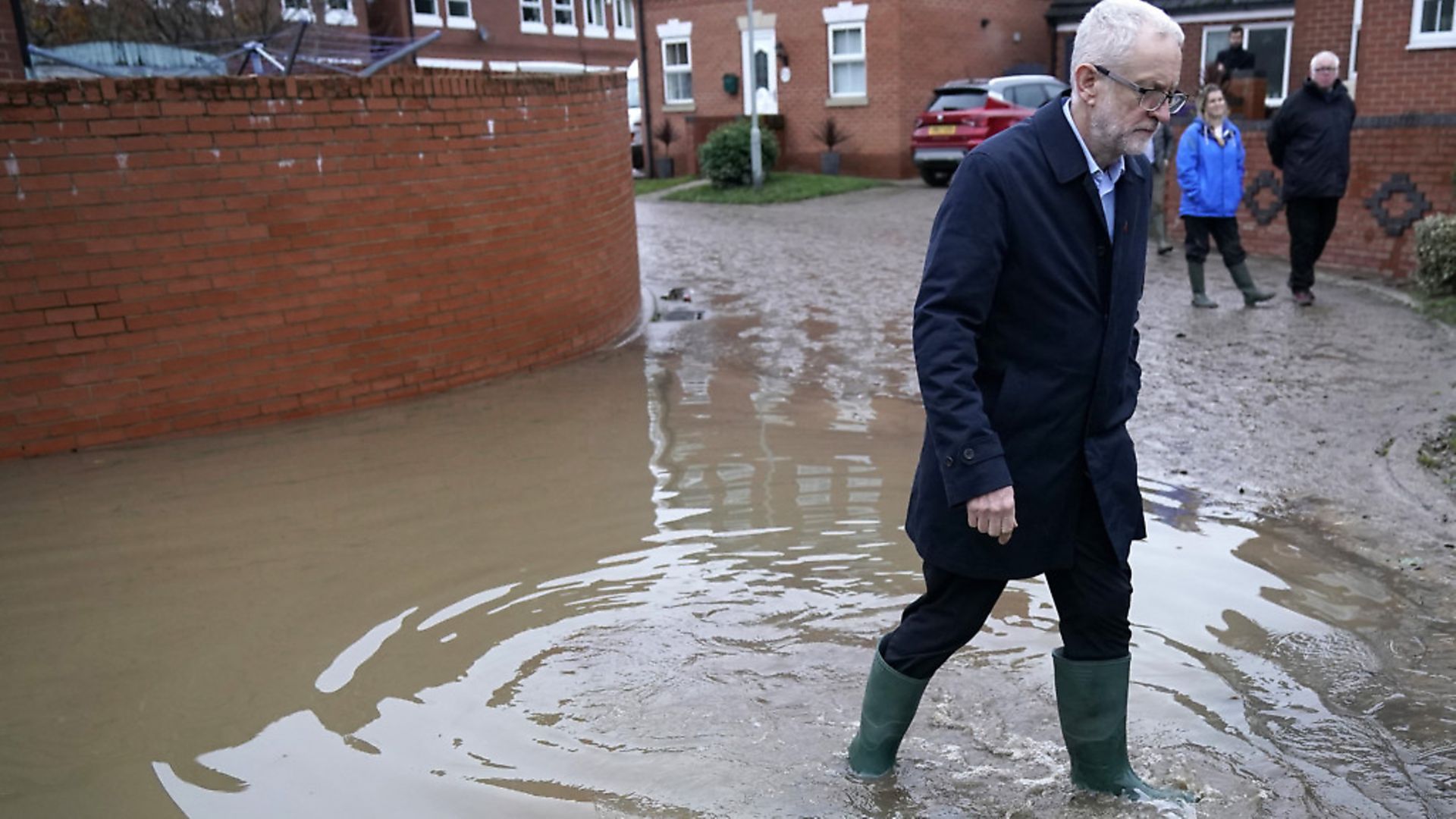
As in 2017, Labour are benefitting from making the campaign a broader conversation, says ZOE WILLIAMS
I heard about Tom Watson’s resignation in the make-up room of a television studio, when I was just about to go on Sky and argue with a Tory about – well, as it turns out, about why Tom Watson had resigned. I found it indecipherable; if he were happy to walk away, why not do so just before conference two months ago, when Momentum’s Jon Lansman was actively trying to kneecap him? (Lansman may have just taken the fall for it; let’s leave that for the memoirs to decide).
Conversely, if the drive-by just made Watson even more determined to stay (natural, human), how did that determination evaporate? If he wanted to damage Jeremy Corbyn, why write such a conciliatory letter of resignation? But if he didn’t want to damage the leader, why resign quite so close to the election? If it was on a point of principle, what possible principle could obtain in November that didn’t in July? And if it was a manoeuvre, where was the advantage?
Some questions are so last century: We’re living in a politics where the people at the dead centre have simply had enough. Seventy MPs – more than one tenth of the house – has opted not to fight this lesser-spotted Christmas election. It’s near impossible to tell who’s up and who’s down when people are willingly throwing themselves off the cliff.
Yet if Watson’s departure was too illegible to deal a significant blow to the Labour leader, nor does it spell the end of the internal divisions.
The Leave/Remain chasm – unions, Corbyn and acolytes on one side, give or take the entire shadow cabinet on the other – persists. Having arrived at their position at conference, they march into the election on a gamble; that their divisions can be safely kicked down the road until the second referendum that their victory, or even partial victory, would assure.
That may or may not be true, but the beauty of a deadline is that it closes off the question and sets the party’s attention elsewhere. This doesn’t make them immune from the embarrassment of close questioning on Sophy Ridge, but it does give them a shared incentive to talk about something, anything, else.
Those of us who thought this would be the Brexit election may have miscalculated. It’s true in so far as its result will determine what kind of Brexit, if any, we get. But it’s untrue in that it underestimated the appetite for a broader conversation.
That is where Corbyn can feel on the safest ground: The last 10 years have brought a huge amount of hardship, not only for those relying on the state for sustenance, but to anyone relying on it for anything. In the atrophy of the past three years and the chaos of the election date, there simply hasn’t been time for the Conservatives to repair the economic damage, even with promises.
Billions for the NHS lacks the credibility it would have from, say, a party that wasn’t famous for underfunding it. Most of their headline offers – 20,000 new police officers, for instance – are no more than an undertaking to return things to way they were, before the cheese-paring began.
Paradoxically, too, the territory on which the Conservatives think they are strongest – “we can end Brexit, by doing it” – they sully by incessantly talking about it. Johnson with his wild Facebook-gesticulations, intoning “Get Brexit Done” to various cameras, comes over as a man possessed by it.
The recent – and I think quite accidental – Labour stance of trying to avoid the subject gets much closer to where the nation is. The polls are catching up with something, at any rate: This week’s Survation numbers, which were collated before the Brexit Party stand-downs, put the Conservatives at 35 and Labour at 29.
However, even pollsters agree that large national mood snapshots, volatile at best and crazy during the campaign period, can’t tell us much about how the election will break on a seat-by-seat basis. There are simply too many groups whose decision will be without precedent, and too many surprise 2017 results whose source was never well enough understood that we can predict whether they will be replicated. The certainties, such as they are, are that both Labour and the Conservatives will be wiped out in Scotland, and the Brexit Party is a spent force in Tory-held seats.
To deal with what this means for the Labour Party: To get from their 2017 result to a working majority, they need 60 seats from England and Wales. To get from their current number – following defections – they need 80, and this assumes that they lose none of their heartlands.
You might expect them to identify those 80 and pour heart, soul and all their resources into them.
The rumour from election towers is Karie Murphy, whose powers of pugilism have been shifted from the leader’s office to the frontline, rejects this advice, preferring to contest “99% of seats” because that’s how winners think. Or something. This is born out by the leader’s early election schedule, which started with a bang in – *checks notes… yup…* – Scotland, for two days, seeking to persuade the voters of Dundee that, against all the odds, they’re still a Labour heartland.
As for the real Labour heartlands: there is a prevailing assumption that the Brexit Party’s decision only to run where there’s a Labour incumbent will harm that party. This is risky to the point of being wild: the Conservatives have their own targets to hit before they can even dream of a majority, and – given likely and significant losses in the south east, where Tory Remainers may not wish to stay homeless for very much longer – they need to take those Labour Leavers.
Arguably, if this recent Farage/Johnson semi-pact transfers cleanly into voter-action, the Brexit Party could take some of the seats the Conservatives were relying on, and then shore them up in government. Yet this is extremely high risk; it could just as easily result in the right vote splitting and keeping the Labour MP in place.
Both Labour and the Conservatives are, as ever, overstating the primacy of the Labour Leaver, and moreover, overestimating the likelihood of further Labour defections. Even in overwhelmingly Leave areas, the majority of Labour voters are still Remain.
Even while UKIP took a lot of votes off the Labour Party in the early part of this century, those voters never returned; to imagine that there is a fresh cache, as there would have to be for the heartlands to change hands, is optimistic.
It is readily understood that there are some voters, particularly in the north east, who would never vote Conservative, whatever their offer. The Brexit Party is thought to be immune from historical taint, being so new: But their messages are as old as politics itself, and there is a strong history of opposition to the far-right across these heartlands.
The worst mistake the Labour Party could make would be to try on some anti-immigrant rhetoric to stanch a potential flow to the parties of xenophobia. Possibly the last reliable correlation in politics is between people who oppose immigration and those who oppose Jeremy Corbyn.
Elections are like wedding days: a lot of internal divisions get papered over and corsetry takes care of the rest. Fights within Labour over the selection of prospective parliamentary candidates, which seemed so vivid even five days ago, are already receding into irrelevance. This is no real indication of what shape the party will be in after December 12, but it may, finally, allow them to concentrate on opposing the government.










